August 7, 2025 by 100XBuilds Team
CRM Customization Guide for Home Builder Workflows
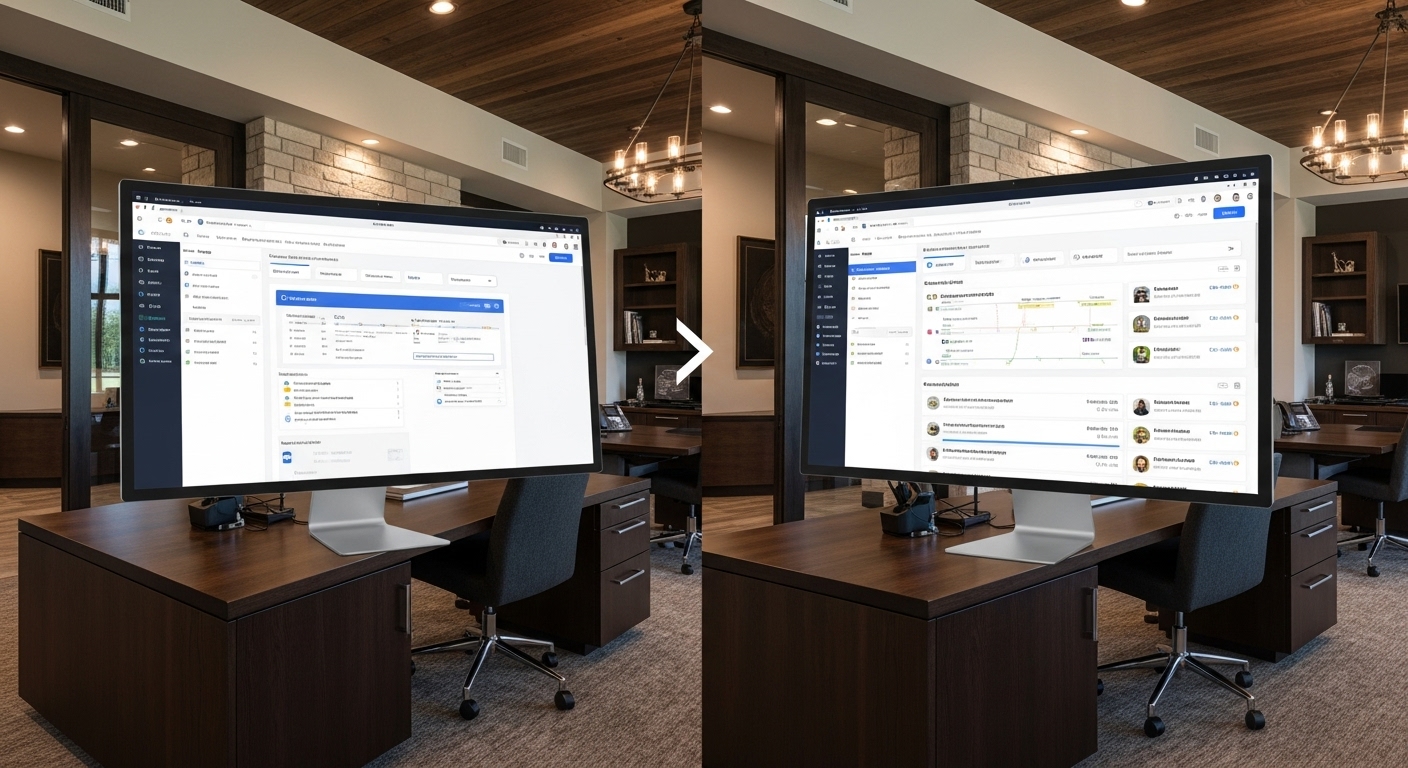
A luxury home builder in Austin increased their sales conversion rate by 34% and reduced project delays by 28% within six months of implementing a fully customized CRM system. The difference? They stopped forcing their $8M annual operation into a one-size-fits-all solution and built workflows that matched their actual business processes.
Most custom home builders are drowning in generic CRM systems designed for widget salespeople, not complex construction projects that span 12-18 months and involve dozens of stakeholders. The result? Critical information falls through cracks, client communications become fragmented, and profitable opportunities slip away.
The Hidden Cost of Generic CRM Systems
Standard CRM platforms cost luxury builders an average of $47,000 annually in lost efficiency and missed opportunities. Here's the breakdown:
Lost sales opportunities: 23% of qualified leads go cold due to inadequate follow-up tracking
Project delays: Poor communication workflows add an average of 3.2 weeks to project timelines
Client satisfaction issues: 31% of client complaints stem from communication breakdowns that proper CRM customization prevents

The solution isn't buying more software—it's customizing your existing CRM to mirror your actual workflows.
Essential CRM Customizations for Home Builder Success
Lead Management Pipeline Redesign
Your CRM's default sales pipeline probably looks like this: Lead → Qualified → Proposal → Closed. That's useless for custom home building.
Optimized home builder pipeline stages:
Initial inquiry: Capture source, budget range, timeline, and lot status
Discovery consultation: Document lifestyle requirements, architectural preferences, and decision-making process
Feasibility analysis: Track site evaluation, permit research, and preliminary cost estimates
Design development: Monitor architectural progress, change orders, and approval milestones
Contract negotiation: Manage proposal revisions, financing coordination, and legal reviews
Pre-construction: Track permit status, material selections, and subcontractor scheduling
Active construction: Monitor progress milestones, change orders, and quality inspections
Final walkthrough: Document punch list items and warranty information
Each stage requires specific data fields, automated triggers, and stakeholder notifications that generic CRM systems simply don't provide.
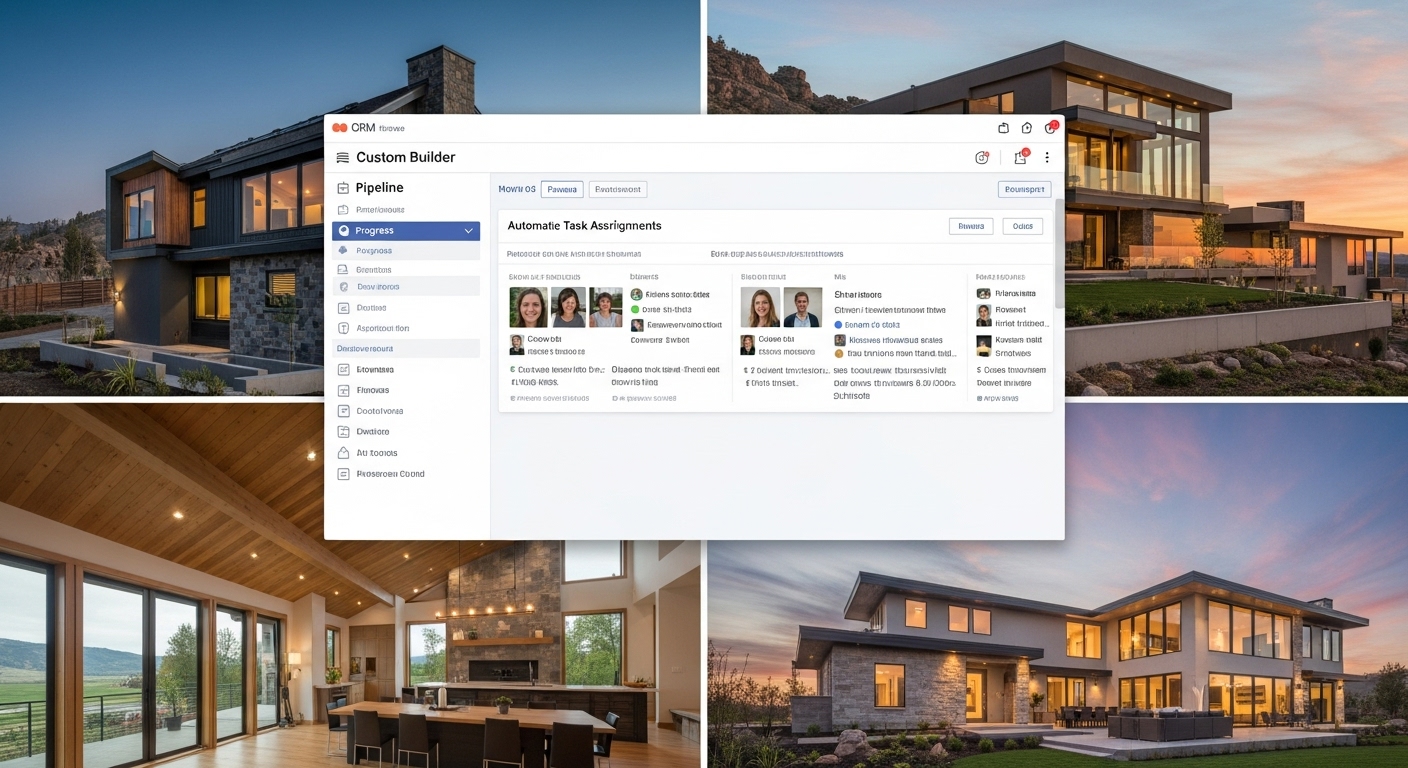
Custom Field Architecture
Standard CRM fields capture name, email, and phone number. Home builders need comprehensive project data architecture:
Client profile fields:
- Lot ownership status and location details
- Budget range with financing pre-approval status
- Timeline flexibility and move-in requirements
- Family composition and lifestyle priorities
- Previous building experience and communication preferences
Project specification fields:
- Square footage range and architectural style preferences
- Special requirements (accessibility, sustainability, smart home)
- Site challenges and opportunities
- Permit jurisdiction and HOA restrictions
- Utility availability and connection requirements
Financial tracking fields:
- Base contract amount and allowance breakdowns
- Change order history with approval status
- Payment schedule and milestone completion
- Cost overrun tracking and margin analysis
- Warranty claim history and resolution status
Automated Workflow Configuration
Manual task management kills profitability. Smart automation keeps projects moving:
Lead nurturing sequences:
- Immediate response with project portfolio and process overview
- Weekly educational content based on project phase
- Milestone celebration messages and referral requests
- Seasonal maintenance reminders and upgrade opportunities
Project milestone triggers:
- Permit submission notifications to all stakeholders
- Material selection deadline reminders with vendor contacts
- Inspection scheduling with subcontractor coordination
- Progress photo requests with client portal updates
Communication escalation protocols:
- Overdue task notifications with manager alerts
- Client response delays triggering personal outreach
- Budget variance warnings with approval workflows
- Quality issue documentation and resolution tracking
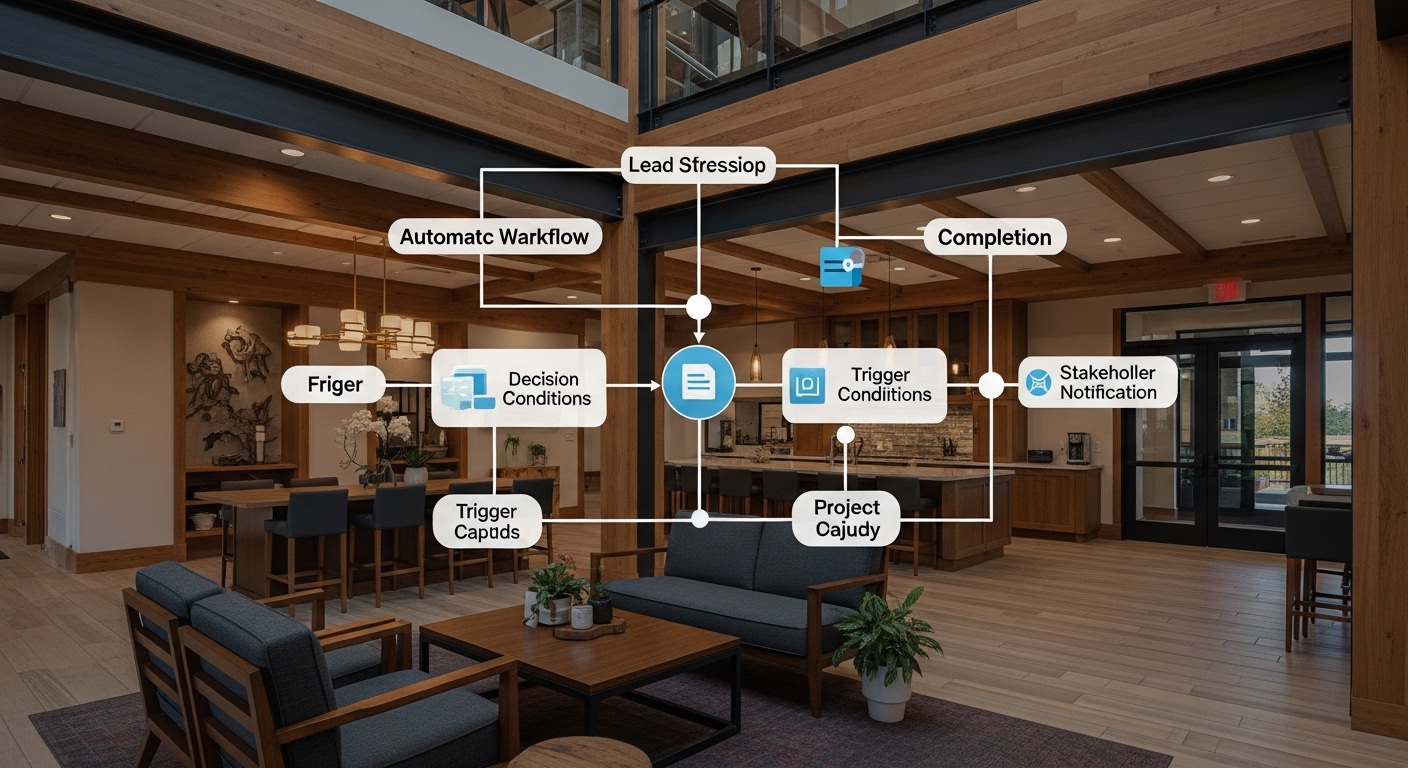
Integration Strategies for Maximum Efficiency
Construction Management Platform Sync
Your CRM shouldn't exist in isolation. Seamless integration with project management tools creates a single source of truth:
Bidirectional data flow requirements:
- Project schedules sync with CRM milestone tracking
- Budget updates trigger client communication workflows
- Change orders automatically update contract values
- Progress photos populate client portal galleries
Real-time status updates:
- Permit approval notifications update project timelines
- Inspection results trigger next-phase communications
- Material delivery confirmations advance milestone tracking
- Subcontractor scheduling updates client expectations
Financial System Integration
Profit margins depend on accurate financial tracking throughout the project lifecycle:
Automated financial workflows:
- Contract execution triggers accounting system setup
- Progress payments sync with milestone completion
- Change orders update budgets and profit projections
- Final invoicing coordinates with warranty activation
Performance analytics integration:
- Cost-per-lead tracking by marketing source
- Conversion rate analysis by sales representative
- Project profitability reporting by home type
- Client lifetime value calculations including referrals
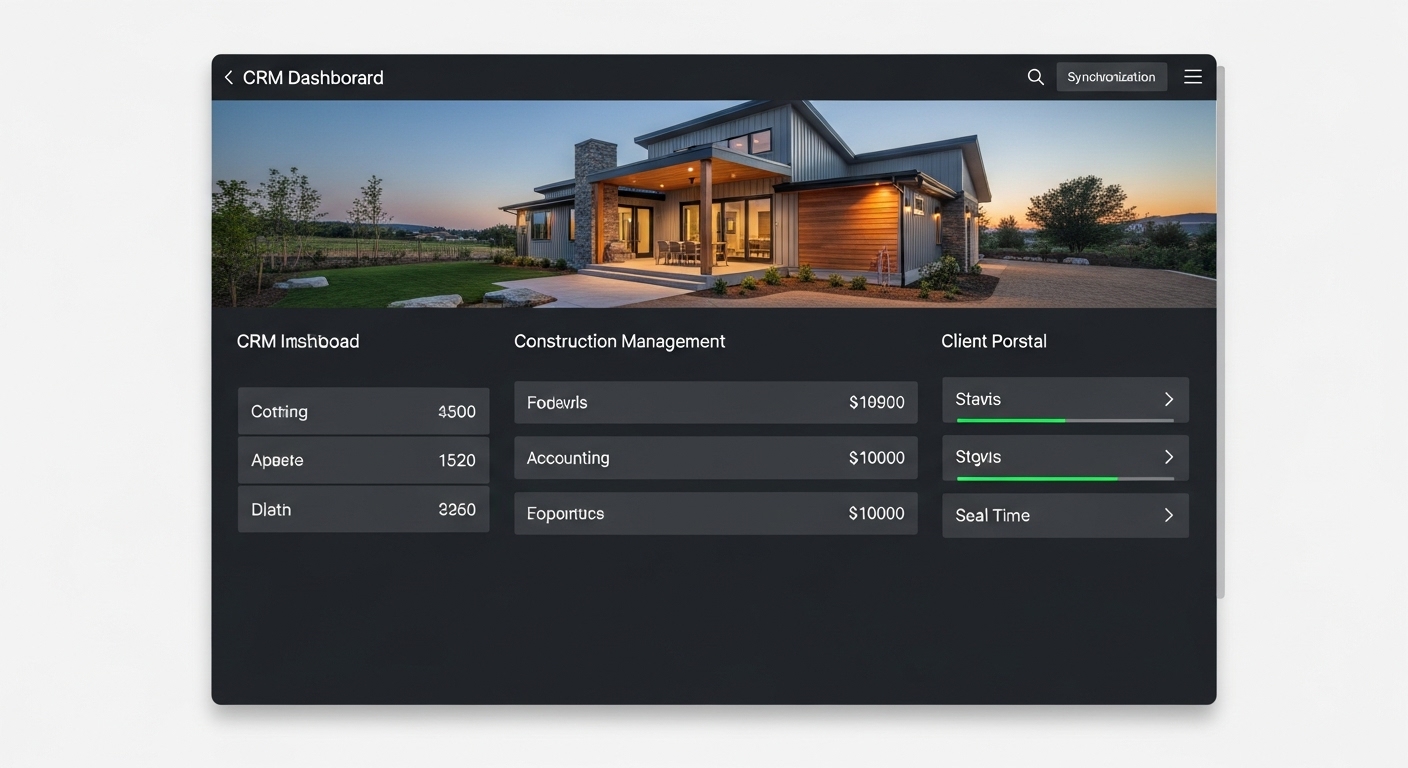
Advanced Customization Techniques
Dynamic Form Creation
Static contact forms capture basic information. Dynamic forms adapt based on user responses:
Progressive profiling strategies:
- Initial forms capture essential qualification data
- Follow-up interactions gather detailed preferences
- Project phase transitions trigger specific information requests
- Completion surveys inform future customization improvements
Conditional logic implementation:
- Budget ranges determine available options and timelines
- Lot ownership status triggers different workflow paths
- Previous building experience adjusts communication frequency
- Geographic location customizes permit and vendor information
Custom Reporting Dashboards
Standard CRM reports show activity metrics. Custom dashboards reveal business intelligence:
Executive-level KPIs:
- Pipeline velocity by project type and price range
- Conversion rates by lead source and sales representative
- Average project duration and profitability trends
- Client satisfaction scores and referral generation rates
Operational metrics:
- Task completion rates by team member and project phase
- Communication response times and client engagement levels
- Change order frequency and impact on project timelines
- Subcontractor performance and reliability scores
Mobile Optimization for Field Teams
Construction happens in the field, not the office. Mobile CRM customization ensures real-time updates:
Field-optimized interfaces:
- Quick photo upload with automatic project association
- Voice-to-text progress notes and issue documentation
- Offline capability with automatic sync when connected
- GPS-enabled check-ins and location-based task triggers
Client communication tools:
- Instant progress updates with photo attachments
- Schedule change notifications with rescheduling options
- Issue resolution updates with estimated completion times
- Milestone celebration messages with personal touches
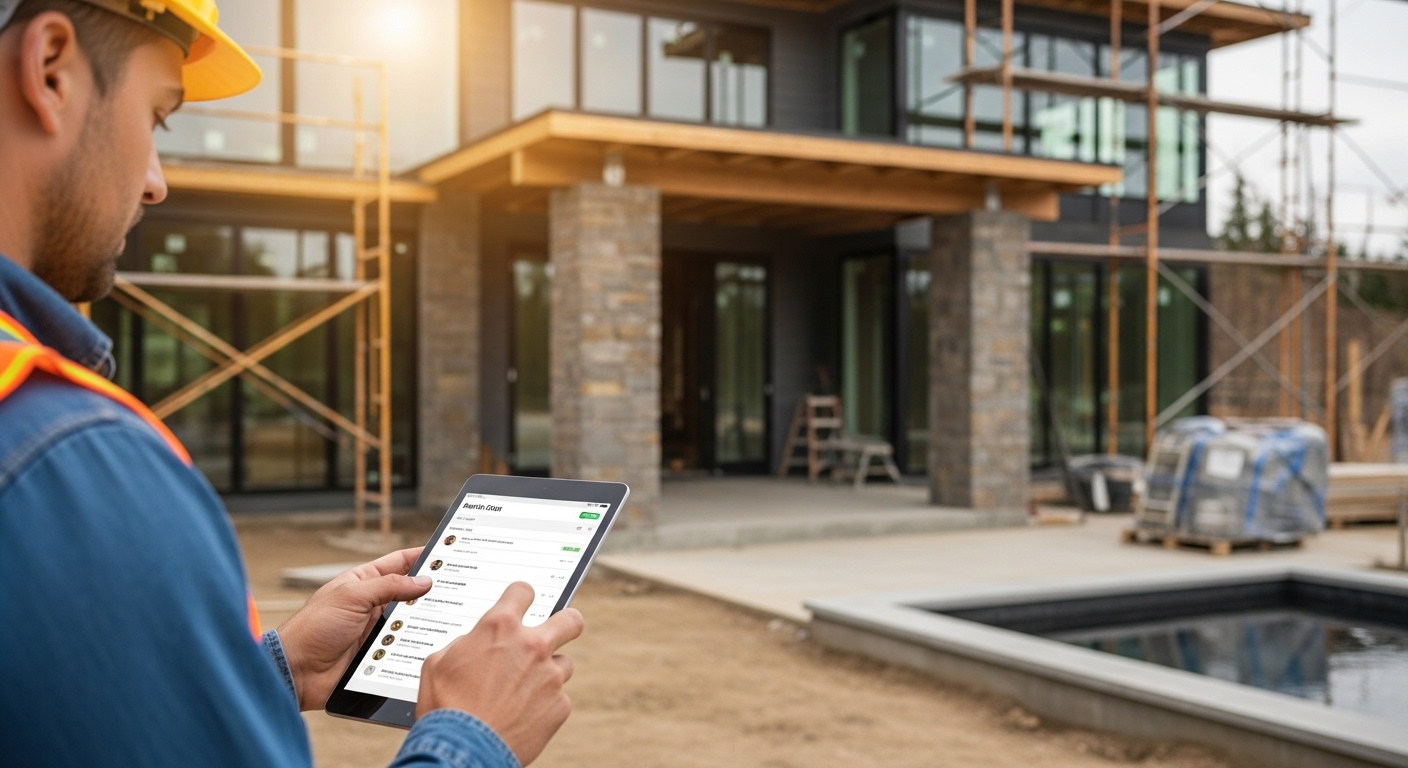
Implementation Best Practices
Phased Rollout Strategy
Attempting to customize everything simultaneously guarantees failure. Successful implementations follow a structured approach:
Phase 1: Core pipeline optimization (Weeks 1-4)
- Redesign sales stages to match actual processes
- Configure essential custom fields for lead qualification
- Establish basic automation for lead response and follow-up
- Train sales team on new workflows and data entry requirements
Phase 2: Project management integration (Weeks 5-8)
- Connect CRM with construction management platform
- Implement milestone tracking and client communication workflows
- Configure change order management and approval processes
- Establish progress reporting and stakeholder notification systems
Phase 3: Advanced automation and analytics (Weeks 9-12)
- Deploy sophisticated nurturing sequences and escalation protocols
- Implement custom reporting dashboards and performance metrics
- Optimize mobile interfaces for field team adoption
- Establish ongoing maintenance and improvement processes
Change Management Protocols
Technology adoption fails without proper change management:
Training requirements:
- Role-specific training sessions focusing on daily workflows
- Hands-on practice with real project data and scenarios
- Regular refresher sessions and advanced feature introductions
- Peer mentoring programs pairing early adopters with skeptics
Adoption incentives:
- Performance bonuses tied to CRM utilization metrics
- Recognition programs highlighting successful implementations
- Efficiency improvements shared across team meetings
- Client satisfaction improvements attributed to better processes
Data Migration and Cleanup
Customized CRM systems require clean, organized data:
Pre-migration audit:
- Identify duplicate records and inconsistent data formats
- Standardize naming conventions and field values
- Archive inactive records and outdated information
- Establish data quality standards and maintenance protocols
Migration validation:
- Test data accuracy and completeness after transfer
- Verify integration functionality with connected systems
- Confirm automation triggers and workflow execution
- Validate reporting accuracy and dashboard functionality
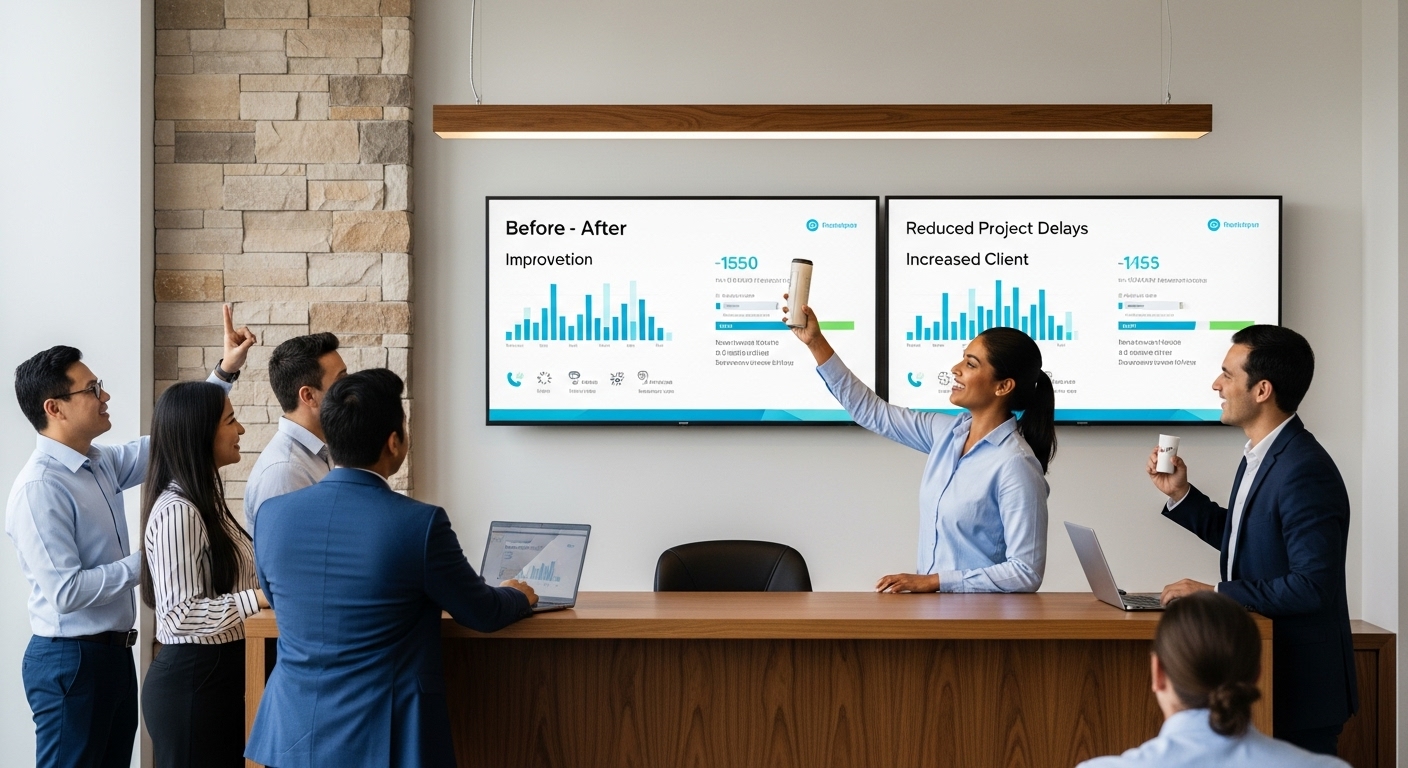
Measuring Customization Success
Key Performance Indicators
Effective CRM customization delivers measurable business improvements:
Sales performance metrics:
- Lead response time reduction (target: under 5 minutes)
- Conversion rate improvement (target: 15-25% increase)
- Sales cycle acceleration (target: 2-4 weeks shorter)
- Average project value growth (target: 8-12% increase)
Operational efficiency gains:
- Task completion rate improvement (target: 95%+ completion)
- Communication response time reduction (target: under 2 hours)
- Project delay reduction (target: 20-30% fewer delays)
- Change order processing acceleration (target: 48-hour turnaround)
Client satisfaction improvements:
- Net Promoter Score increase (target: 70+ NPS)
- Referral rate growth (target: 25-35% of new business)
- Complaint resolution time reduction (target: under 24 hours)
- Warranty claim processing efficiency (target: 72-hour response)
ROI Calculation Framework
CRM customization investments should generate measurable returns:
Direct revenue impact:
- Increased conversion rates × average project value
- Reduced sales cycle length × opportunity cost savings
- Improved client retention × lifetime value calculations
- Enhanced referral generation × acquisition cost savings
Operational cost reductions:
- Administrative time savings × hourly labor costs
- Reduced project delays × carrying cost calculations
- Improved communication efficiency × staff productivity gains
- Automated workflow savings × manual process elimination
A properly customized CRM system typically generates 300-500% ROI within the first year through improved sales performance and operational efficiency.
Future-Proofing Your CRM Investment
Scalability Considerations
Your CRM customization should grow with your business:
Volume scalability:
- Database architecture supporting 10x current project volume
- Automation workflows handling increased lead generation
- Reporting systems maintaining performance with expanded data
- Integration capabilities supporting additional software platforms
Feature expandability:
- Modular customization allowing incremental improvements
- API accessibility for future third-party integrations
- User permission structures accommodating team growth
- Mobile optimization supporting field team expansion
Technology Evolution Adaptation
CRM platforms continuously evolve. Smart customizations anticipate future capabilities:
Artificial intelligence integration:
- Lead scoring algorithms based on historical conversion data
- Predictive analytics for project timeline and budget accuracy
- Natural language processing for client communication analysis
- Automated task prioritization based on project urgency
Advanced automation opportunities:
- IoT integration for real-time construction progress monitoring
- Drone photography automation for progress documentation
- Smart contract integration for milestone-based payments
- Virtual reality integration for client design presentations
Your CRM system should be a competitive advantage, not a necessary evil. When properly customized for home builder workflows, it becomes the central nervous system that coordinates every aspect of your operation—from initial lead capture through warranty service and referral generation.
The builders who invest in comprehensive CRM customization today will dominate their markets tomorrow. Those who continue struggling with generic solutions will watch their competitors pull ahead with superior client experiences and operational efficiency.
Ready to transform your CRM from a data repository into a profit-generating machine? Contact 100XBuilds today for a comprehensive CRM customization audit and implementation strategy tailored specifically to your luxury home building operation.
